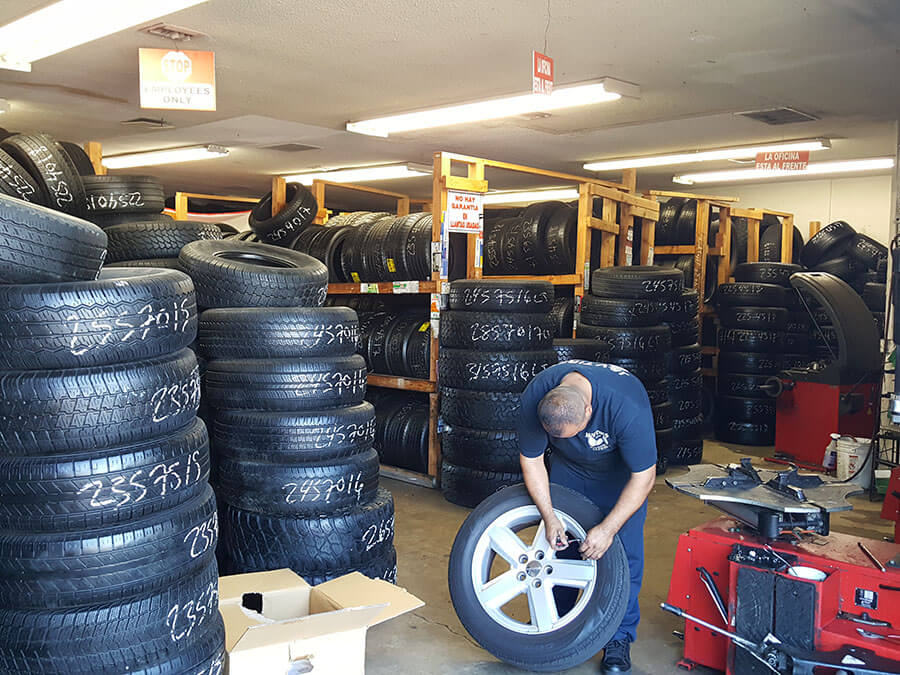Professional Morris Tire and Alignment Services: Guarantee a Smooth and Safe Drive
Professional Morris Tire and Alignment Services: Guarantee a Smooth and Safe Drive
Blog Article
Tire Solution: The Effect of Weather
When it concerns making certain optimal performance and safety and security when driving, understanding the impact of weather on tire service is vital. From scorching heat to icy roadways, each weather aspect can dramatically affect tire capability and general driving experience. By diving into the effects of differing climate condition on tires, drivers can gain useful insights that may enhance their lorry's performance and long life. In this discussion, we will certainly explore the intricate relationship between weather and tire service, losing light on the relevance of weather-specific tire maintenance practices and considerations.
Heat and Tire Efficiency
When subjected to heats, tires experience modifications in performance that can substantially influence car safety and security and handling. The heat produced from long term driving or heat conditions causes the tire rubber to soften, bring about reduced walk life and boosted wear. As the rubber becomes softer, the tire's hold on the roadway reduces, influencing stopping distances and total grip. In severe instances, excessive warmth can also create tire blowouts, posturing an extreme security danger to the vehicle and its passengers.
Additionally, high temperatures can speed up the procedure of tire aging, triggering the rubber to degrade more rapidly. To alleviate the effects of heat on tire performance, drivers should consistently inspect their tire stress, revolve tires to guarantee also wear, and check for any signs of damages.
Cold Climate Effects
Cold weather condition problems can have a considerable effect on tire performance and safety. As temperature levels drop, tire rubber can set, causing reduced grip on icy or snow-covered roads. In chilly weather, tires may additionally lose atmospheric pressure a lot more rapidly, which can influence taking care of and gas performance. Additionally, cold temperature levels can create tire sidewalls to stiffen, raising the danger of damages from pockets or other road risks.
To alleviate the effects of winter on tires, it is crucial to on a regular basis examine tire pressure and inflate them to the producer's suggested degrees. Making use of winter season or all-season tires made for winter problems can additionally enhance traction and hold on icy or snowy roadways - mopar tire service specials. Appropriate tire upkeep, including normal evaluations for wear and damages, ends up being a lot more critical during colder months to make certain optimal efficiency and security
Rainy Issues Impact
During wet problems, tire performance and safety and security can be dramatically influenced by the damp roadway surface areas and decreased visibility. The tread pattern of tires plays an essential role in keeping traction on wet roads. Tires with damaged treads are extra vulnerable to hydroplaning, where a layer of water develops in between the road and the tire surface, causing loss here are the findings of grip. To combat this, chauffeurs ought to on a regular basis inspect their tires for ample tread depth and think about investing in tires especially created for damp conditions.

Snow and Tire Safety
When driving in snowy conditions, having the appropriate tires can make a substantial difference in safety and security and performance. Wintertime tires are designed with special rubber substances and walk patterns to offer much better grip on snow and ice compared to all-season tires.
Along with using wintertime tires, it is crucial to ensure they are effectively pumped up. Winter can create tire pressure to drop, influencing traction and handling (mopar tire service specials). Routinely inspecting and keeping the proper tire stress is essential for optimum efficiency in snowy conditions

Weather-Related Tire Maintenance
When faced with numerous climate condition, appropriate tire upkeep comes to be a critical facet of lorry security and performance. Weather-related tire upkeep includes an array of methods intended at making sure ideal tire feature and long life in different weather situations. One essential facet of weather-related tire upkeep is tire stress regulation. Varying temperature levels can create tire stress to vary, impacting grip and gas efficiency. Regularly examining and adjusting tire pressure according to producer referrals is crucial for safe driving in transforming weather conditions. Furthermore, tire tread deepness plays a considerable duty in dealing with different climate aspects. Tires with sufficient tread depth supply far better hold on damp or icy roadways, decreasing the danger of hydroplaning or skidding. When tread wear gets to a particular depth is crucial for maintaining traction and security in negative climate, checking tire step frequently and changing tires. By focusing on weather-related tire maintenance, vehicle drivers can improve security, enhance vehicle efficiency, and lengthen the life-span of their tires.
Verdict
Finally, climate condition have a significant effect on tire performance and safety. From warm impacting tire stress and wear to winter lowering grip, it is important to think about the climate when keeping and utilizing tires. Rainy conditions can reduce grip and lead to hydroplaning, while snow can enhance the risk have a peek at these guys of crashes if tires are not effectively equipped. Weather-related tire upkeep is important in making certain ideal efficiency and safety and security when traveling.
In this discussion, we will certainly discover the intricate connection in between climate conditions and tire solution, dropping light on the significance of weather-specific tire upkeep techniques and factors to consider.

Report this page